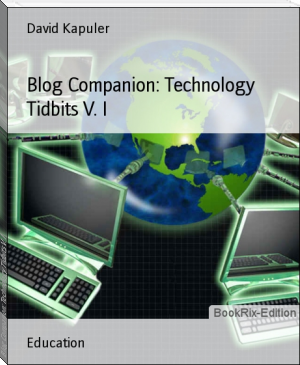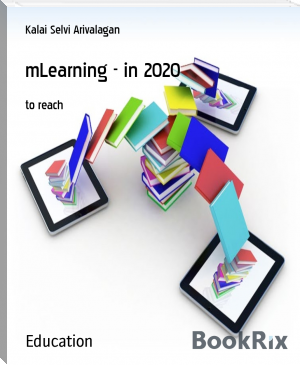INNOVATIONS IN SCIENCE, TECHNOLOGY AND MATHEMATICS EDUCATION IN NIGERIA, Ebele C. Okigbo, Nneka R. Nnorom, Ernest O. Onwukwe [best reads .TXT] 📗

- Author: Ebele C. Okigbo, Nneka R. Nnorom, Ernest O. Onwukwe
Book online «INNOVATIONS IN SCIENCE, TECHNOLOGY AND MATHEMATICS EDUCATION IN NIGERIA, Ebele C. Okigbo, Nneka R. Nnorom, Ernest O. Onwukwe [best reads .TXT] 📗». Author Ebele C. Okigbo, Nneka R. Nnorom, Ernest O. Onwukwe
“My job did not allow me to register all the courses for the first semester, so I couldn’t graduate last year.”
“I actually missed some examinations in 2017 due to time conflict with my job as a Security Chief in my organization.”
Family/Personal problems:
Family responsibilities prevented some students from carrying the recommended course load per semester. 36% responded that this was the main reason for the delay in their graduation.
A participant stated thus -
“I had to take my child back to school on the day GST101 was taken, but I have re-taken the examination last semester”.
Delay in Approval of Project Topics-
Under this category a participant gave the following response,-
“I waited five months to get my project topic approved. When I did not get it, I had to travel to Lagos to collect the approved topic from the School of Law; however I have submitted the finished project.”
36% of the participants gave this as the reason for the delay in their graduation
Financial problems-
Financial consideration was one of the reasons given by 24% of the participants for delay in their year of graduation. Some of them stated as follows,-
“I would have graduated last year but I did not have enough money to re- register the two courses where I have missing results for another examination.”
“I was not able to pay the registration fees for the second semester of 2016, that’s why I am yet to graduate”.
Deficiency in Entry Requirements-
10% of the participants indicated that the delay in their graduation was due to deficiency in their entry requirements.
“I had a pass in English language and Mathematics but I credited them last year, so I am hoping to graduate this year” This is the response of one of the participants”.
Research Question 2: What are the students’ expectations from the University?
Most of the participants responded as follows-:
“Since I have all the evidences that I sat for the examination the university should score me and graduate me”
“Prompt graduation and mobilization to the Law School.”
“To provide the result of all my re-written courses and graduate me”
“I expect the university to allow study centres to approve project topics, this will lessen the problems that students undergo in travelling to Lagos/Abuja to get approval for project topics”
“To waive the missing results and facilitate my graduation”
“I expect the university to enlist my name for the next graduation in January 2020”
“I expect a speedy graduation and release of my missing results which I have written to the School authority. I have already submitted my project since March 2018.”
Discussion
The comments of the participants have shown that the problem of missing result in National Open University of Nigeria is a worrisome issue to the students. About 70% of the participants stated that the main reason for the delay in their graduation was due to the inability of the university to release the results for the examinations they had already taken. Examinations serve as basis for assessment and promotion to the next level in all educational institutions. If a student is not notified of his result, he cannot make any progress in his academic achievement. Such a student remains stagnated, the period of study is prolonged and graduation is delayed. Sometimes lack of immediate feedback on examinations and assignments also lead to students’ attrition. The effect of immediate feedback on students’ motivation and academic success cannot be over emphasized (Simpson, 2003). The non- release of examination results poses the greatest challenge to students’ timely completion of their programmes and graduation. Comments from the participants reveal that most of the missing results are from the pen-on –paper examinations which are centrally marked by the academic staff in designated Marking venues. The issue of missing result has indeed become a matter of great concern and a great challenge to the university management. For the students, it is not only frustrating but demoralizing. The implications of a missing result in any course for a student is spending extra money and time to re-write the examination, travelling to Lagos/Abuja to search for the result, or writing to the Dean of the Faculty through the Study Centre Director and of course delay in the expected date of graduation.
Demands of employment usually lead to extension of graduation date (Tait, 2015). This is because time and energy are finite resources. Many students who are employed may not be able to carry the number of credit hours assigned to a semester. However time management is of paramount importance to the distance learner who is fully employed, since this will determine the length of studies and graduation (Furr & Elling, 2000)
The conflict between studies and family obligations that many students experience is more acute for women. Giving birth and raising children are distinctive events that interrupt the studies and careers of a high percentage of women. Combining home management and studies has been identified as one of the constraints faced by women enrolled in NOUN (Nnaka, 2013). This affects the ability of the women to meet deadlines for submission of assignments and to attend examinations as they are scheduled. Taplin (2000) found that female students at IGNOU reported severe bottleneck in pursuing their studies due to their commitments at home. Inadequate student support systems in open and distance learning create problems for distance learners especially women. (Mirja & Singh, 2014) It is therefore necessary to provide child care services or child learning centres at the study centres. Also reducing the frequent travels to the study centres and introducing E- facilitation could help the women cope with family responsibilities.
The problem of waiting for months to get approval for project topics has also been identified as a reason that delays graduation of students. Many students travel to Lagos/Abuja from their various centres just to get approval for their proposed project topic. This problem can be handled at the study centres. The facilitators/supervisors at the various study centres possess the academic capacity to approve researchable topics for the students, since they are Ph.D. holders, and some are professors. Problems associated with employment, family and finances can be greatly reduced if adequate student support services are provided and if the programmes are made to be more flexible. Student support services are indispensable to the success, completion and graduation in open and distance learning.
Conclusion
Immediate feedback on examinations and assignments is very critical in determining students’ academic success and graduation. From the findings of the study, missing/omitted examination result is the main reason for the delay in students’ graduation in NOUN. Missing result is gradually becoming a stigma and a big challenge to the University. The students also identified demands of employment, delay in approval of project topics, financial problems, family problems and deficiency in entry requirement as reasons for delay in their graduation .However, it should be noted that there are other reasons that could delay students’ graduation, such as change of programme of study, change of study centre, late registration of courses, inability to access one’s portal, negative balances in students’ wallet among others. The University needs to address these issues urgently so as to meet students’ expectations on their year of graduation.
Recommendations
The National Open University of Nigeria should improve its student support services especially academic and information and communication technology (ICT) services to ensure that students get immediate feedback on their performance in examinations.
The university should revisit the process of marking of examination scripts and forwarding of students’ results to the Directorate of Examinations and Assessment.
NOUN should acquire more robust software for the collation and uploading of students’ results into their portals.
A special unit should be set up in the university to give rapid response to complaints of missing examination results. The unit should have desk officers at every study centres. Their contact information- emails and phone numbers should be made available to the study centres and the students.
Appropriate punishment should be meted out to any staff that is found to have tempered with students scripts or results.
Project topic proposals from the students should be approved at the study centre level by qualified facilitators/supervisors.
NOUN should consider setting up child care centres (crèches) at the study centres.
NOUN should introduce a special financial aid scheme to assist indigent students who may need it.
References
Bogdan, R.C. and Briklens, S. P. (1998), Qualitative Research for Education. An
Introduction toTheory and Methods. Needham Heights. M.A: Allyn and Bacon.
Canabal, M.E. (1998), College Student Degree of Participation in the Labour force: Determination and Relationship to School Performance. College Student Journal, 32 (4), 597-606.
Chaloux, B. (2008), Overcoming the Financial Barriers for e-Learners. Journal of AsynchronousLearning Networks. 12 (2), 55-59
Federal Republic of Nigeria (2004), National Policy on Education, (4th edition), Lagos: NERDC.
Ford, J. & Bosworth, D. (1995), Part-time Work and Full-time Education. Studies in Higher
Education, 20(2), 187-203.
Furr, S.R. & Elling, T.W. (2000), The Influence of Work on College Student Development. NASPA Journal, 37(2), 454-470
Gatsha, G. and Evans, R. (2010), Learner Support Perception and Expression of Distance Learners in Botswana. Progressio South African Journal of Open and Distance Learning Practice, 32(1), 155-169.
Hannay, M. & Newvine, T. (2006) Perceptions of Distance Learning: A Comparism of On- line Learning and Traditional Learning. MERLOT Journal of Online Learning and Teaching, 2, No.1, 21-25
Heller, D. & Callender, C. (Eds.) (2013) Student Financing of Higher Education: A ComparativePerspective. Abingdon: Routledge
Hillman, D.F.A, Willis, D.J. and Gunawardena C.N. (1994), Learner-Interface Interaction in
Distance Education and Extension of Contemporary Models and Strategies for Practitioners. American Journal of Distance Education, 8 (2), 30-34.
Kramarae, C. (2003), Gender Equity Online, When There is No Door to Knock on. In M. Moore & W. Anderson (Eds.) Handbook of Distance Education, (pp. 261-272) Mahwah, NJ, Erlbaum.
Mirja, S. & Singh S. P. (2014) Effectiveness of Students Support Services Provided by Indira Gandhi National Open University (IGNOU). Mediterranean Journal of Social Sciences. 5, (26) 18-24
Nnaka, C.V. (2014) Evaluation of Students’ Support Services in National Open University of Nigeria –the Students’ Perspective. EDULEARN14 Proceedings. 6th International Conference on Education and New learning Technologies. July 7-9 2014, Barcelona, Spain, 5261-5268
Nnaka, C.V. (2013), Socio-economic Characteristics of Women Enrolled in Higher Education Programmes at the National Open University of Nigeria. African Higher Education Review (AHER) 7, 6-19.
NOUN at A Glance (2018), A Publication of the Vice-Chancellor’s Office, National Open
University of Nigeria, Abuja.
NOUN PROFILE 2015/2016, A Publication of the Vice-Chancellors’ Office, National Open University of Nigeria, 15.
Perkins, G. Pitter G, Wijesinghe, H, Howat, C. & Whitefield, D. (1999), Relationship of
Financial Aid, Work and College Performance. AIR 1999 Annual Forum Paper.
Prummer, V.C. (2000), Women and Distance Education. London. Routledge,
Rathlore, H.C.S, Sing, S.K and Dubey, G. (1996) Problems of Women Students in Distance Education in India. Indian Journal of Open Learning, 5(1)17-27.
Sampson, D. (2003), Supporting Students in Open and Distance Learning. In Lockwood, F. (Ed.) Open and Distance Learning Today. London: Routledge.
Sharma, H.L. (2002), Student Support Services in Distance Learning System. A Case of DDE, Maharshi Dayanand University, Turkish Online Journal of Distance Education, 3 (4), 8-13.
Sheybani, F. and Javidi, G. (2004), Interactive Media and Distance Learning. A Paper delivered at the ASEE/IEEE Frontiers in Education Conference, Savannah, G.A http//fieengrng. pitt/fie 2004 papers/1539.pdf.
Tait, A. (2015) Student Success in Open, Distance and e - Learning. Oslo: International Council for Open and Distance Learning.
Taplin, M. (2000), Problems Experienced by Female Distance Education Students at IGNOU: Why do Some Consider Dropping Out, While Others Decide to Stay. India Journal of Open Learning, 9(2) 191-210.
EFFECT OF PROJECT INSTRUCTIONAL STRATEGY ON CHEMISTRY STUDENTS ACADEMIC ACHIEVEMENT AND RETENTION
Dr. Chinwe B. Njelita
Chinenye F. Nduka
&
Ada C. Nlemadim
Abstract
The study examined the effect of project instructional strategy on Secondary chemistry students’ academic achievement and retention in Oyi Local Government Area of Anambra State. Two research questions and two null hypotheses guided the study. Quasi-experimental research design specifically pre-test, post-test, non-equivalent control group design was adopted for the study. The population of the study was 656 SS II students from Oyi Local Government Area of Anambra State. Simple random sampling technique was used to select four (4) schools in Oyi Local Government Area of Anambra state. Eighty-two (82) students served as experimental group, while sixty-eight (68) students serves as control group, making a total of





Comments (0)